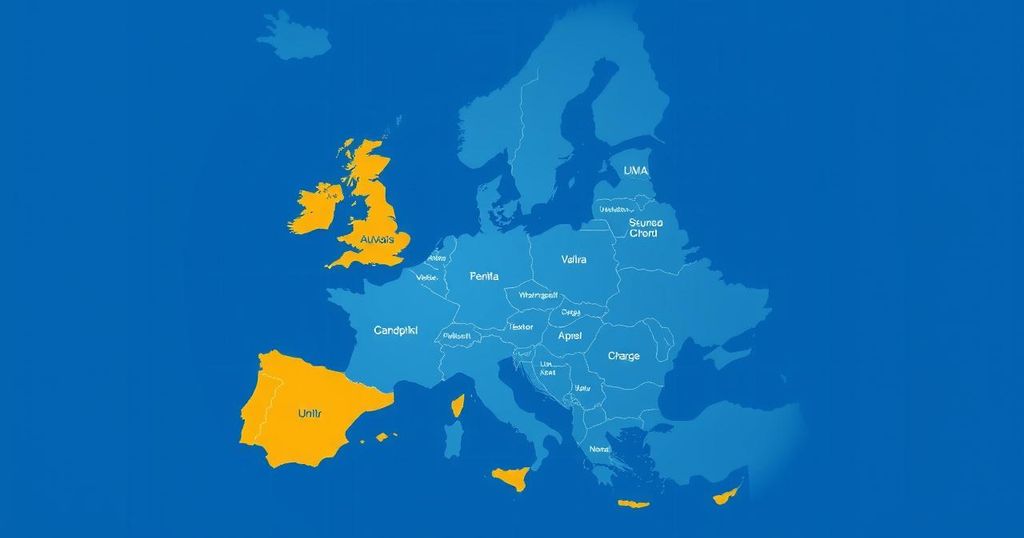At COP29 in Baku, the European Union is pivotal in driving climate negotiations, working to secure a deal that includes collaboration with China and developing nations. With substantial contributions to climate finance, the EU aims for increased funding commitments while facing economic constraints. Key voices stress the importance of EU leadership and the necessity to avoid backtracking on climate pledges made in previous negotiations.
The European Union (EU) is taking a central role in the negotiations at COP29 in Baku, Azerbaijan, as it seeks to forge a comprehensive climate agreement by the end of the meeting. In the backdrop of evolving global dynamics following Donald Trump’s election in the United States, the EU has engaged in discreet discussions with China and formed alliances with developing countries such as Kenya and Palau. Last year alone, the EU made significant contributions towards climate finance, with a total of 35.8 billion euros allocated to assist developing nations in combating climate crises, underscoring its commitment to global climate action. As the bloc strives for carbon neutrality by 2050, European nations collectively account for 12 percent of historical greenhouse gas emissions, placing them in a unique position of responsibility. EU climate commissioner Wopke Hoekstra has emphasized this point, stating, “We will continue to lead, to do our fair share, and even more than our fair share, as we’ve always done.” Meanwhile, developing nations, represented by voices like Diego Pacheco from Bolivia, have called upon the EU to showcase greater leadership instead of allowing the mitigation burden to fall disproportionately on them. Despite the EU’s pivotal role in climate finance, some skepticism remains regarding its willingness to increase funding commitments, particularly given its current economic constraints. The ODI think tank has indicated that countries such as France, Germany, and Denmark have exceeded expectations with their climate contributions, although there is an overarching need for more transparency and collaborative efforts moving forward. Negotiations remain underway to potentially double the annual funding commitment for developing nations, with ideal figures ranging between 200 billion to 400 billion dollars. This ambitious target reflects the increasing urgency to address the climate crisis and build resilient infrastructures in vulnerable regions. As discussions progress, the EU’s next steps will be crucial; they are being closely monitored by stakeholders who emphasize the need to uphold last year’s COP28 commitments toward phasing out fossil fuels. Wopke Hoekstra articulated this sentiment, stating, “We, as a global community, cannot afford to backslide,” stressing the necessity for unified, progressive action in climate policies.
The context of the COP29 climate talks highlights the increasingly vital role of Europe amid shifting global political landscapes. Following uncertainties in U.S. climate policy under former President Donald Trump, the EU’s leadership in climate finance and negotiations with developing nations is particularly significant. The urgency of climate change, coupled with the ongoing challenges faced by developing countries, necessitates robust international collaboration to secure adequate funding and strategic support for climate resilience initiatives. The negotiations in Baku aim not only to clarify financial commitments but also to enhance transparency and encourage broader participation from all nations in addressing climate change.
In summary, the upcoming negotiations at COP29 reflect the European Union’s crucial role in shaping global climate policy and supporting developing nations’ efforts to mitigate climate change. The success of these discussions relies heavily on the EU’s leadership in funding commitments and collaborative strategies with both China and other developing nations. As they navigate economic pressures, the EU must demonstrate resolve and transparency in their climate finance offerings to fulfill global expectations and forward the agenda for a sustainable future.
Original Source: www.france24.com






